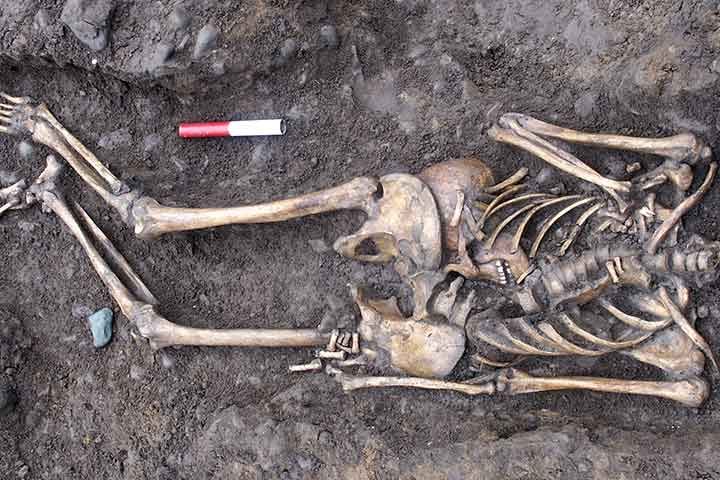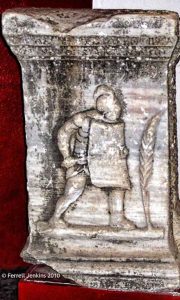The analysis made on Roman gladiators bones buried in Ephesus shows that they might have been vegetarians, according to the news published in Plos One.
In a study by the Department of Forensic Medicine at the Medical University of Vienna in cooperation with the Department of Anthropology at the Institute of Forensic Medicine at the University of Bern, bones were analyzed from a gladiator cemetery unearthed in 1993 which dates back to the 2nd or 3rd century BC in the ancient Roman city of Ephesos (now in modern-day Turkey). In its respected ancient history, Ephesos was the capital of the Roman province of Asia and had hosted over 200,000 inhabitants, where at its Stadium many events, were held including the fights of gladiators whose schools were even owned by certain families.

Bones analysis results show that the gladiators were mostly on a vegetarian diet. They rather relied on beans, grain, and drinks made out of plant ashes and mostly not consuming meat at all. By far, the reports referred to them as barley eaters also known as “hordearii”.
 Using spectroscopy, stable isotope ratios (carbon, nitrogen, and sulfur) were investigated in the collagen of the bones, along with the ratio of strontium to calcium in the bone mineral.
Using spectroscopy, stable isotope ratios (carbon, nitrogen, and sulfur) were investigated in the collagen of the bones, along with the ratio of strontium to calcium in the bone mineral.
“Plant ashes were evidently consumed to fortify the body after physical exertion and to promote better bone healing,” explains study leader Fabian Kanz from the Department of Forensic Medicine at the Medical University of Vienna. “Consumptions were similar then to what we do today – we take magnesium and calcium (in the form of effervescent tablets, for example) following physical exertion.”
Read more about the study of Ephesian Gladiator’s Vegetable Diet published on Plos One back in Oct. 2014.



